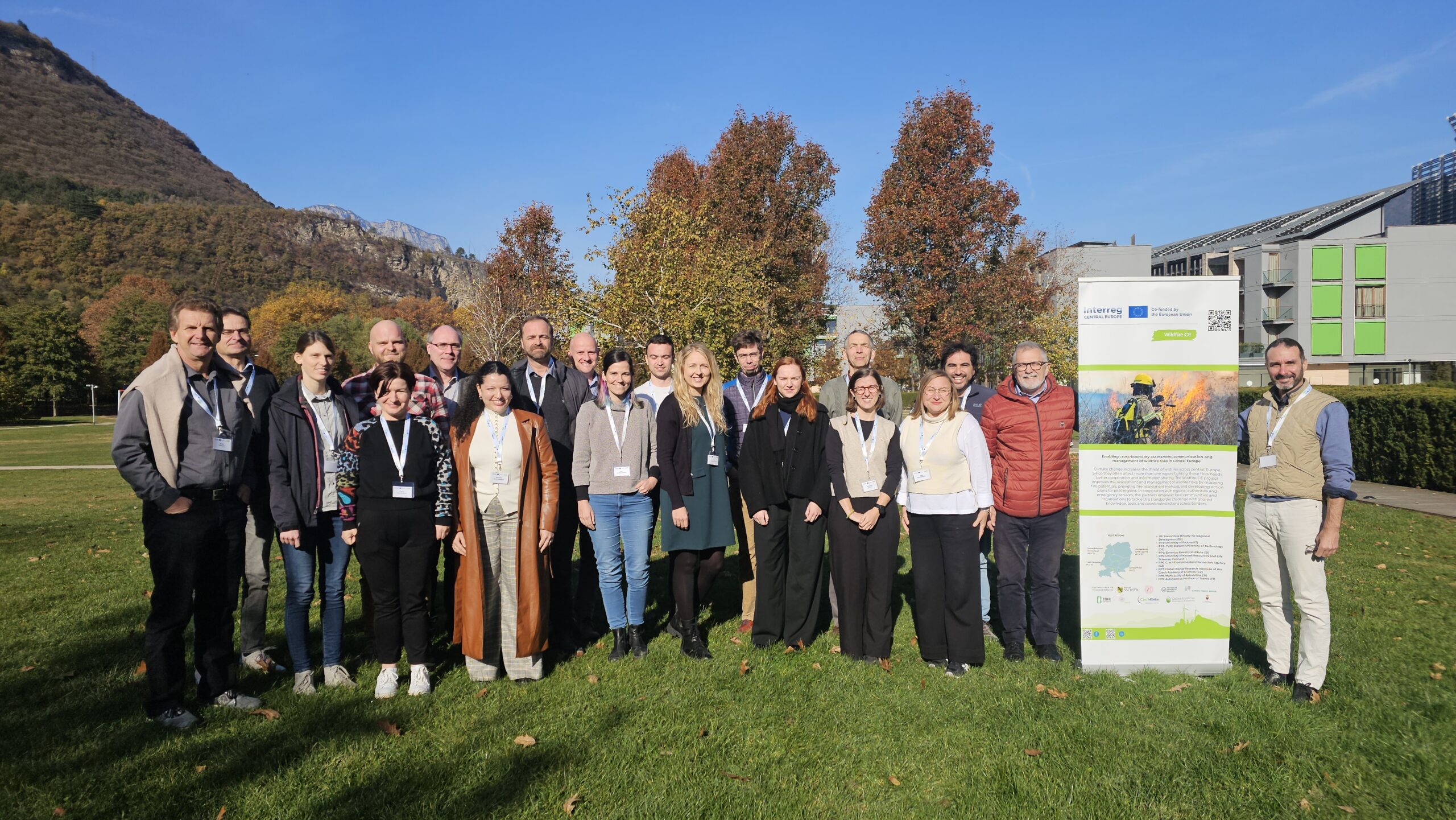The first day began with a welcome coffee, followed by the Steering comittee meeting and a series of technical sessions led by project partners. These included discussions on fuel type mapping, fire behavior modeling, and validation of fuel moisture, with contributions from UNIPD and CzechGlobe.
During the workshop session from 13:30 to 15:30, several key presentations and discussions took place regarding cross-border fire danger and regional wildfire management practices. C. Marrs from TUD presented a comparative analysis of fire danger levels and restrictions across borders, highlighting differences and challenges in harmonizing risk assessments. F. Cimenti from the Forest Service of Regione Friuli Venezia Giulia shared insights on how weather-related fire danger indices are applied specifically in the Friuli Venezia Giulia Region, emphasizing regional adaptations. H. Vacik from BOKU University discussed hypotheses about the discrepancies observed between forest fire regulations and varying meteorological fire dangers in Austria, suggesting that regulatory differences may not always align with actual fire risk conditions. Jaša Saražin from SFI presented on the procedures for declaring fire weather danger in Slovenia. The session concluded with an open round table discussion, allowing participants to exchange views and explore solutions to harmonize fire danger assessments and regulatory frameworks across the involved regions. This workshop aimed to foster collaboration and deeper understanding among stakeholders about how fire danger levels are evaluated and managed in a cross-border context.
The day concluded with an overview of the report on best practices for managing wildfire risks and strategies for applying spatial and meteorological data to assess wildfire dangers in border regions. Partners met at a joint dinner in the evening.
The second day opened with the communication section, analyzing the communication activities and the reach of target groups. After that, a presentation on mapping of risk areas by SFI was presented, followed by the CzechGlobe’s discussion about the Pilot Site testing Event of Platform and presentation of findings, training and validation event. The last presentation was held by Municipality of Ajdovščina presenting the method for preparing the action plans for every Pilot region.
On the field trip, participants visited the Avio fire prevention system to observe firsthand the measures and technologies implemented for wildfire prevention. The trip also included a stop at the Avio fire station, giving attendees an opportunity to engage with local fire service personnel and learn about their operational practices in wildfire management.
Overall, the meeting aimed to strengthen cross-border cooperation, refine wildfire risk assessment methodologies, and foster stakeholder engagement to develop harmonized wildfire management strategies.
